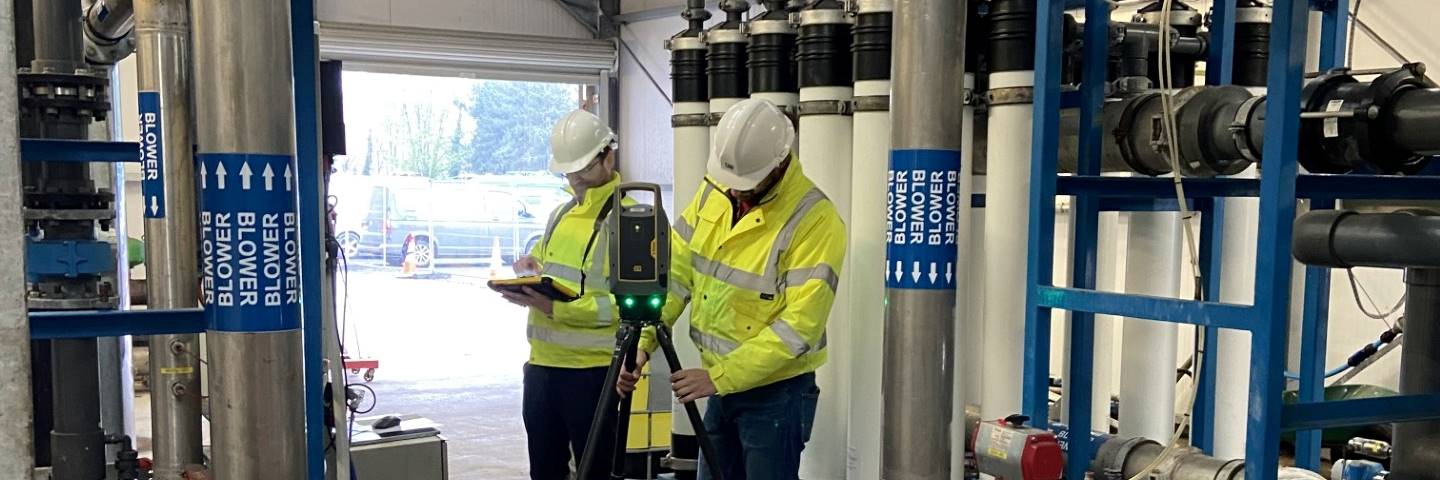Sludge Treatment: Biosolids Management and Nutrient Recovery

Sludge is a by-product generated from the primary and secondary stages of wastewater treatment. It is an energy-rich resource, with high calorific and nutrient content. Advanced sludge treatment enables effective processing to maximise nutrient recovery.
The resulting biosolids and nutrients from these advanced processes can be safely used for agricultural and land applications, and reduce solid waste volume.
Advanced Biosolids Management experts
CAW excels in designing, building and operating advanced sludge and biosolids management facilities – including the delivery of an advanced treatment expansion at Ringsend WwTW to increase capacity and throughput by 60%.
As part of CAW’s Operation and Maintenance Contracts at Uisce Éireann’s wastewater treatment plants in Dublin, Waterford, and Sligo, we manage the Advanced Sludge Treatment Centres. We currently recycle nearly 20,000 tonnes of biosolids for agricultural use, which is set to double over in 2025 following major capacity upgrades at Ringsend WwTW.

Biosolids Management Operations and Maintenance Expertise
We have a proven track record of providing advanced solutions for efficient sewage sludge treatment and resource recovery at leading wastewater treatment plants across Ireland for more than 25 years, including:
Operational Management
Expert management of three Uisce Éireann Advanced Sludge Treatment Centres, ensuring optimal performance throughout all stages including the application of cutting-edge Nereda® Advanced Granular Sludge technology, Thermal Hydrolysis, Pasteurisation, Ephyra® digestion technology and proactive maintenance of various MEICA plants and equipment.
Comprehensive Sludge Processing
Efficiently managing the reception, transfer, and treatment of primary and SAS sludge, as well as imported tankered waste. This includes applying Tthermal Hydrolysis to transform sludge into a more digestible form to maximise biogas production during Anaerobic Digestion (AD).
Energy and Heat Reuse
Generating biogas from anaerobic digesters, including both the widely used mesophilic process and advanced two-stage Ephyra systems, to produce renewable energy for plant operations, enhancing sustainability and efficiency. Additionally, excess hot water and steam from boilers are used for processes such as Sludge Pasteurisation and Thermal Hydrolysis, to further improve energy efficiency.
Nutrient Management and Reporting
Implementing Nutrient Management Protocols and collaborating with local authorities to ensure effective biosolids recycling, and facilitate recovery of additional nutrients such as phosphorus through P-fixation.
Sustainable Biosolids Recycling
Managing the recycling of Class A biosolids to agricultural lands, integrating energy-efficient pasteurisation, through reusing excess heat from steam boilers and Anaerobic digestion within the process.

Innovation in Biosolids Management
While the land application of biosolids offers significant benefits for soil health and nutrient recycling, future restrictions are likely to be influenced by environmental, health, regulatory, public perception, and technological factors.
Continuous treatment process innovations and improvements will be essential to address these challenges further reduce carbon emissions, and ensure the safe and sustainable use of biosolids. We are actively partnering with our parent company, Anglian Water, and industry leaders to explore and implement advancements that enhance biosolids management at a national level such as:
HTO (Hydrothermal Oxidation) - converting biosolids into CO₂, water, and mineral residues using high temperature and pressure in water.
Pyrolysis - heating biosolids in the absence of oxygen to produce biochar, syngas, and bio-oil.
Gasification - Thermally converting biosolids with limited oxygen to create syngas and ash, which can be used for energy.
HCO (Hydrothermal Carbonisation) - Treating biosolids at high temperatures and pressure to produce hydrochar, usable as fuel or soil amendment.
HTL (Hydrothermal Liquefaction) - converting biosolids into bio-crude oil under high temperature and pressure, which can be refined into fuel.




